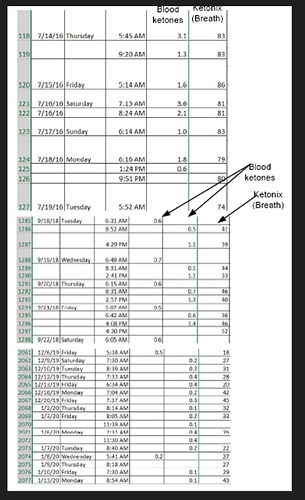Okay, I’ve been lamenting “not being in Ketosis” despite being a carnivore.
But I’ve seen a Sea Change among a few people.
The old belief was that Ketones of 0.5 are required to say you are in ketosis.
Dr. Bikman, and Dr. Boz (recently) mentioned that at some point, this 0.5 is a bit arbitrary.
And for some people (like me who are not very active physically), having ANY ketones (a reading other than LO) is likely a sign that you are actually in ketosis.
The core concept is that after you adapt, your body simply will NOT waste a ton of ketones if you don’t need them. I think this is why WALKING helps my ketone numbers so much…
Without walking, I am typically 0.3 … And I KNOW it’s not the carbs! Also, when I eat meat, I can get a decent glucose rise. That is NOT Gluconeogenesis… It’s actually your liver releasing energy. Whoa… This changes things…
After years of this lifestyle, I am starting to lean in this direction.
Again, this is for someone FULLY keto adapted, and not eat CRAP foods or “KETO” treats, etc.
Even Stephen Phinney said they are looking at this situation at Virta Health!
I am curious what others think???



